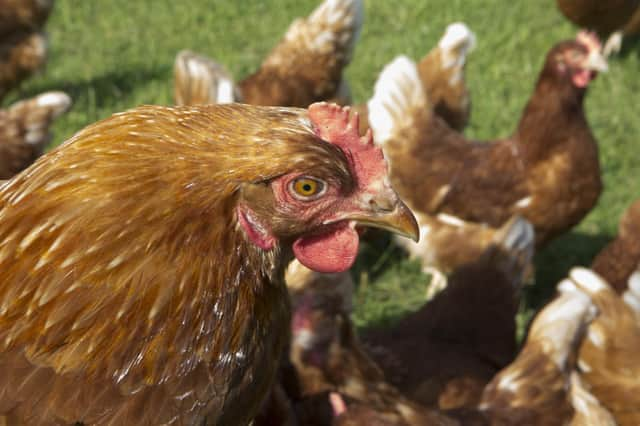Brexit’s threat to the environment – Richard Dixon


Environmental standards, food standards and environmental decision making are all under threat.
The last week saw the latest episode in the fight between the House of Lords and the House of Commons over whether imported food would have to meet our own domestic food, animal welfare and environmental standards in the Westminster Agriculture Bill.
Advertisement
Hide AdAdvertisement
Hide AdWithout this kind of guarantee we face the prospect of importing products like chlorine-washed chicken, hormone-fed beef and genetically-modified crops from the US, and allowing in products containing residues of pesticides illegal in this country. On consumer law, we don’t know if we will be protected from products containing chemicals hitherto banned in this country.
Meanwhile, the Scottish and UK governments are still arguing about who controls the 111 policy powers that be inherited from Brussels. These cover many areas important to the environment from air quality and maritime law to energy efficiency and water quality.
While we were a member of the EU the Scottish Parliament already controlled much in these areas, with Scottish Government strategies and Scottish Parliament laws on these topics. Indeed we already have an air quality standard, for ultra-fine particles, which is higher in Scotland than in the rest of the UK. But Brexit means these areas will become the domain of the UK Government for an indeterminate transitional period.
So we don’t really know who will be in charge of environmental standards in Scotland from the 1st January. The UK Government say these power will come to Scotland. Eventually. But the temptation will be for the UK to hang on to them, to make sure goods sold in one part of the UK can be sold everywhere in the UK. The Scottish Government has promised to try to keep up with improving environment standards in the EU and we can’t do that if the standards are set down south. Will our higher air quality standard still apply next year? Will it be Westminster or Holyrood who can change it?
Even if we do end up controlling all our environment and food standards in Scotland will trying to keep standards high land us in a trade court for supposedly creating barriers to trade? These kind of secretive supra-national courts are common in trade agreements. US oil and gas company Lone Pine Resources is using these corporate courts to sue Canada over the fracking moratorium in Quebec. US oil giant Chevron used the system to successfully overturn a massive fine from the Ecuadorian government for failing to clean up oil pollution in the Amazon rainforest. The French waste firm Veolia spent six years using this kind of system to challenge the Egyptian government for daring to raise the minimum wage.
It is perhaps a small mercy that people have stopped waffling on about Super Norway Plus status and similar nonsense, but as 2021 hurtles towards us, the many uncertainties over environmental, food and consumer standards and their relation to trade deals are likely to vex us right up to the wire and beyond.
Dr Richard Dixon is Director of Friends of the Earth Scotland